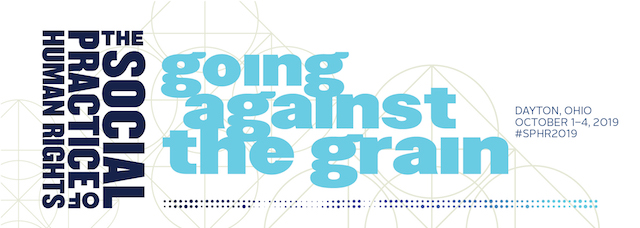Location
Economic Inequality and Climate Justice
Start Date
10-2-2019 2:00 PM
End Date
10-2-2019 3:30 PM
Keywords
Caste, Climate justice, economic inequity
Abstract
This paper examines the deepening of economic inequities in India as a result of caste and climate change. Caste as a structure of disadvantage and discrimination determines social, economic, and political status in India. Access to the non-agricultural labor market, financial resources like banking and microfinance resources, and rural cooperatives is shaped by one’s position in the caste hierarchy. Further, the social mobility of the rural poor, migration trajectories, and navigation of the urban labor market are shaped by caste networks in India. In recent years, climate change has also adversely affected various caste groups in India. The change in the monsoon cycle, the depleting water table, and unexpected droughts have led to poor agricultural outcomes, causing some caste groups to experience cycles of debt and impoverishment. As part of these transformations, there is increasing exacerbation of economic inequities among caste groups as evidenced in growing inequalities in incomes, property holdings, and other material resources. The paper analyzes the reproduction and deepening of economic inequities among caste groups by looking at climate change and the adaptive capacity of various castes in terms of (a) their ability to navigate non-agricultural rural and urban labor markets; (b) their ability to diversify economic activities, which is shaped by access to material and non-material resources, and (c) their capacity to access financial resources and state social security options. In so doing, the chapter provides a substantive perspective on caste and climate justice as a human rights issue, which is interlinked with exacerbating economic inequalities in India.
Author/Speaker Biographical Statement(s)
Dadasaheb Tandale is a Ph.D. student at School of Global Inclusion and Social Development at UMass, Boston. He holds an M.A. in Social Work from Tata Institute of Social Sciences, India. Dadasaheb is passionate about social justice and working for socio-economic and political inclusion of marginalized communities. He has been working in the development sector at the intersections of health rights, land rights and climate justice for the most vulnerable populations in India. As a professional, he has worked in research, advocacy, project management, program operations and communications with government, partner agencies and communities.
Included in
Other Public Affairs, Public Policy and Public Administration Commons, Social Policy Commons, Social Work Commons
Caste, Economic Inequality, and Climate Justice in India
Economic Inequality and Climate Justice
This paper examines the deepening of economic inequities in India as a result of caste and climate change. Caste as a structure of disadvantage and discrimination determines social, economic, and political status in India. Access to the non-agricultural labor market, financial resources like banking and microfinance resources, and rural cooperatives is shaped by one’s position in the caste hierarchy. Further, the social mobility of the rural poor, migration trajectories, and navigation of the urban labor market are shaped by caste networks in India. In recent years, climate change has also adversely affected various caste groups in India. The change in the monsoon cycle, the depleting water table, and unexpected droughts have led to poor agricultural outcomes, causing some caste groups to experience cycles of debt and impoverishment. As part of these transformations, there is increasing exacerbation of economic inequities among caste groups as evidenced in growing inequalities in incomes, property holdings, and other material resources. The paper analyzes the reproduction and deepening of economic inequities among caste groups by looking at climate change and the adaptive capacity of various castes in terms of (a) their ability to navigate non-agricultural rural and urban labor markets; (b) their ability to diversify economic activities, which is shaped by access to material and non-material resources, and (c) their capacity to access financial resources and state social security options. In so doing, the chapter provides a substantive perspective on caste and climate justice as a human rights issue, which is interlinked with exacerbating economic inequalities in India.



